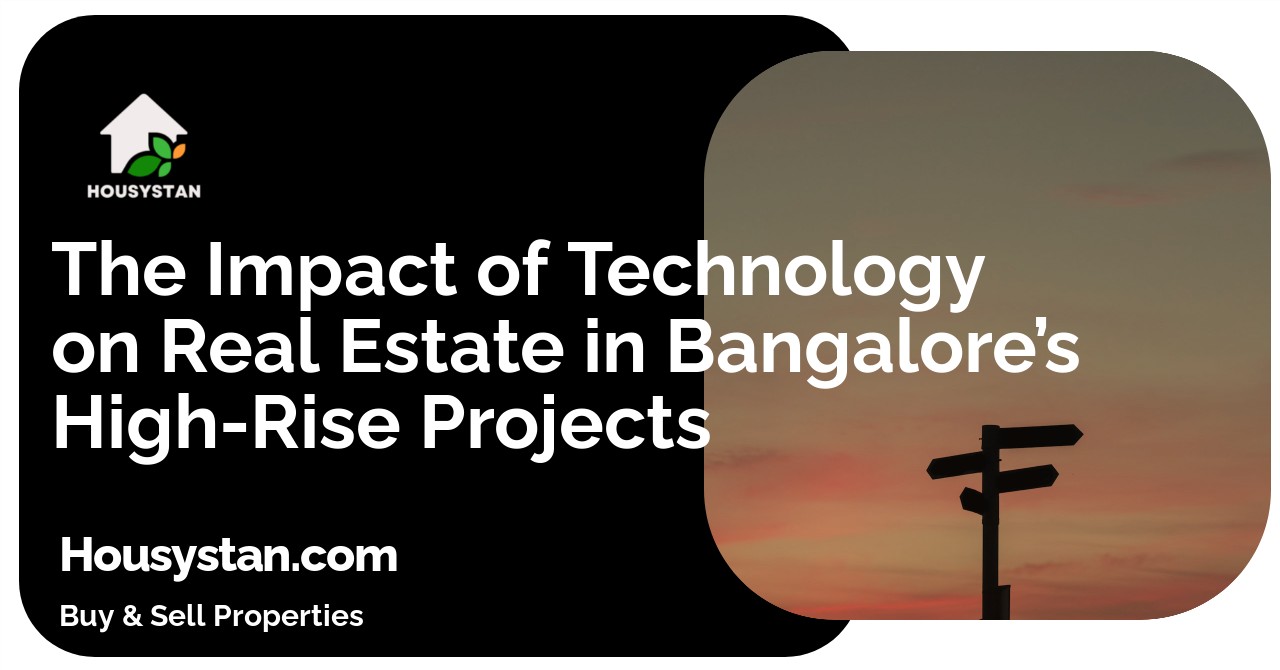The Impact of Technology on Real Estate in Bangalore’s High-Rise Projects
Read latest blogs and articles from Housystan

The Information mentioned here was last updated on:
29/1/2026The dynamic city of Bangalore has long been recognized as India’s technology capital. Over the last decade, the real estate landscape here has witnessed a remarkable transformation, primarily driven by cutting-edge innovations. High-rise residential and commercial projects are reshaping the skyline, and technology is at the heart of this evolution.
One of the key advancements in Bangalore’s property sector is the integration of smart home features. Modern high-rise apartments are now equipped with intelligent lighting, automated security systems, and energy-efficient climate controls. These features not only enhance comfort but also boost property values, making them highly attractive to buyers and investors seeking futuristic living spaces in Bangalore.
Furthermore, the use of advanced construction technologies such as prefabricated materials, Building Information Modeling (BIM), and green building techniques has significantly reduced completion timelines. This ensures that developers in Bangalore deliver projects faster without compromising on safety or quality. The adoption of sustainable practices is also helping builders meet the city’s growing demand for eco-friendly homes, appealing to environmentally conscious residents and investors alike.
- Verified Tenants/Buyers
- Unlimited Property Listing
- Zero subscription/charges fee
Bangalore’s real estate developers are also leveraging artificial intelligence and big data to identify lucrative locations for new high-rise developments. By analyzing market trends, consumer preferences, and infrastructure projects, companies can pinpoint areas with the highest potential for growth. This data-driven approach ensures maximum returns for stakeholders and contributes to the city’s overall urban development.
In addition, virtual tours and digital marketing strategies have revolutionized the way properties are showcased in Bangalore. Prospective buyers can now explore apartments and commercial spaces remotely, saving time and making the decision-making process more efficient. This technological shift has enabled real estate agencies to reach a broader audience, including NRIs and global investors interested in Bangalore’s thriving property market.
As Bangalore continues to expand vertically, technology remains a pivotal factor in shaping the future of high-rise projects. From enhanced safety features to sustainable construction and smarter homes, the synergy between innovation and real estate is setting new benchmarks for urban living in this vibrant city.